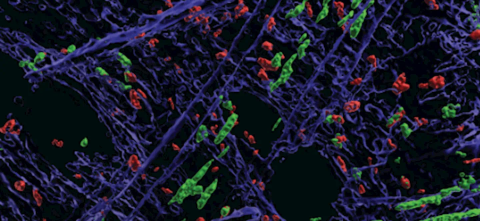
MSU Connects Change in DNA to Cleft Palate Phenomenon
Cleft lip and cleft palate are some of the most common birth defects in people, affecting roughly one in every 700 babies in the world. Researchers have identified a likely culprit: a change in DNA variant near a specific gene.

Highlighting the Negative Impact of the COVID-19 Pandemic on Special Education Students in Michigan
Researchers at Michigan State University’s College of Education published a new study exploring learning gaps for students with disabilities and especially for those who are Black, Asian, and economically disadvantaged students — with the 2019-21 school years showing staggering declines in identifying students who could benefit from special education.

Bringing Dark Comets to Light
Darryl Seligman, a postdoctoral fellow in the College of Natural Science’s top-ranked Department of Physics and Astronomy, is the lead author on a paper that uncovers seven new dark comets in our solar system.

Reprogramming Immune Cells to Decrease Rejection of Medical Implants
When it comes to medical implants, Michigan State University researchers have discovered that using a drug that is a metabolic inhibitor performs like an opening act and makes the body more receptive to medical devices such as pacemakers, replacement joints and dental implants.

Worried About a Pregnant Woman’s Stress and Mental Health? Her Saliva May Hold the Key
New research out of Michigan State University found that the number and type of microbes present in the saliva of pregnant women differ according to whether they are experiencing life stress and symptoms of anxiety, depression and post-traumatic stress disorder.

Uncovering Plant Resistance Through Aphids Saliva
Aphids are small yet mighty. In the right conditions, these tiny creatures can be among the most destructive insect pests to crops and cultivated plants, making understanding aphids’ feeding process crucial to the plant health field.

Using Brain Activity to Predict Visits to Urban Areas
Researchers from Michigan State University are the first to measure brain activity to make predictions that could help inform enhanced urban planning and design that addresses the well-being of residents and visitors.

MSU Team Helping Unlock Cosmic Mysteries in Antarctica
Roughly a year from now, scientists at the IceCube Neutrino Observatory will begin deploying more than 400 multi-photomultiplier digital optical modules, or mDOMS, deep inside a 1 billion-ton block of ice at the South Pole as part of the IceCube Upgrade — a feat powered in part by the work of a team from Michigan State University.
Announcements
